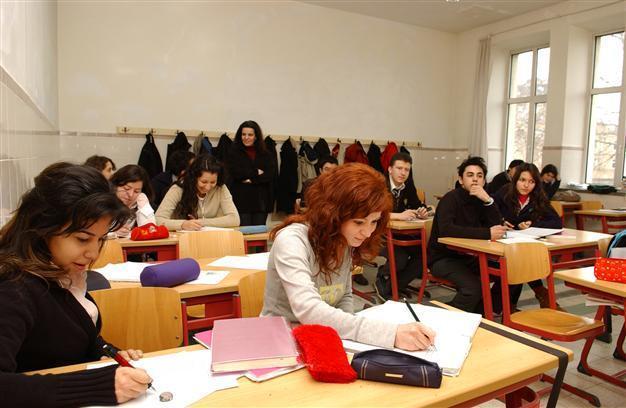Turkish president approves ‘democratization package’ and closure of prep schools
ANKARA

Hürriyet Photo
President Abdullah Gül has finally approved a bill to “transform” private test prep schools (dershanes), a move which is strongly objected to by the Gülen movement. Gül also approved a government-dubbed “democratization package” of reforms aimed at strengthening fundamental rights and freedoms, including the right to conduct political campaigning in one’s mother tongue.According to the package, political parties and candidates will be able to use any language or dialect in all forms of promotion, thus legalizing material in Kurdish. Bans on Kurdish names for settlement places are also being lifted.
Parties will be able to implement a co-leadership system, on the condition that they have no more than two co-leaders and such a system detailed in their party statute.
Parties that receive more than 3 percent of the total number of valid votes cast in a general parliamentary election will receive Treasury funds, which will amount to no less than 1 million Turkish Liras. This arrangement will enable the Peace and Democracy Party (BDP) to receive a treasury funds.
Meanwhile, “preventing the use of freedom to announce religious beliefs, opinions and convictions either by force or by another illegal act” could result in a sentence of between one and three years’ imprisonment. The same sentences will be applied to those who “intervene in a person’s choices about lifestyle based on his or her beliefs, opinion or convictions and force this person to change their choices.”
The punishments for hate-related discrimination against different languages, religions, races, nationalities, political understandings or sects will also be increased to a prison sentence of between one and three years. The government also seeks to “protect people’s lifestyles” through constitutional amendments that increase the punishments for “those who abuse the people’s rights to pray and participate in religious ceremonies.”
The move to shut down the test prep schools is part of legislative measures led by Prime Minister Recep Tayyip Erdoğan against what he calls the “parallel state,” which he accuses of plotting against the government through corruption and graft claims.
Tension between Erdoğan and influential U.S.-based cleric Fethullah Gülen, former allies, have been simmering for years, but boiled over the government’s decision to close the prep-schools.
Parliament voted earlier this month to close the schools by Sept. 1, 2015, but the move was subject to the approval of the president.
Education Minister Nabi Avcı recently acknowledged that the prep-school “transformation” bill may have an impact on close to 40,000 personnel working at the schools, many of which are owned by businesspeople close to the Gülen movement.
When the bill is recorded in the Official Gazette, the senior-level bureaucratic administration at the Education Ministry will change entirely, with the exception of the undersecretary.
According to the bill, the terms for principals and deputy principals will be restricted to four years. Accordingly, principals and deputy principals who have been in office for four years or longer after the bill goes into effect will automatically be relieved of their duties.
Meanwhile, main opposition Republican People’s Party (CHP) deputy parliamentary group chair Akif Hamzaçebi, said his party was working to carry the articles of democratization package and prep-schools, which they think are against the Constitution, to the Constitutional Court.
















